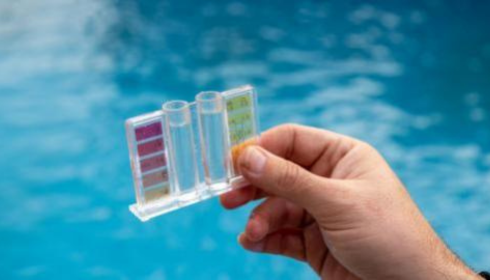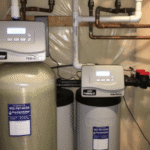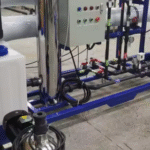I grew up thinking the faint chemical smell in tap water was just “how water is supposed to be.” It wasn’t until I spent a summer in the Hill Country that I realized—wow—water could taste crisp, clean, and refreshing, without the sharp bite of chlorine. For many Texans, though, chlorine is part of daily life. Cities use it for a good reason: keeping bacteria out of our water supply. But here’s the catch—while chlorine protects, it also lingers. And sometimes, it lingers a little too much.
If you’ve ever poured yourself a glass and thought, why does this taste like a swimming pool?, you’re not alone. Families across Texas are starting to rethink how much chlorine is actually safe—or at least tolerable—in the water they drink and cook with every single day.
Why Chlorine Becomes a Problem
Don’t get me wrong—chlorine isn’t the villain of the story. Without it, public water systems couldn’t keep pace with population growth or fend off contamination. But just like salt in a stew, too much ruins the whole experience.
Excess chlorine can dry out your skin, fade your clothes faster, and even change the way your coffee tastes. Long showers leave you smelling faintly chemical, and let’s not even talk about the taste of pasta boiled in over-chlorinated water. People with sensitive skin or allergies often feel it the most, but even those with “tough” systems notice when chlorine levels spike.
That’s where chlorine removal services TX become more than just a luxury—they’re a practical investment.
The “Local Fix” Mindset
Texans have a do-it-yourself streak, and plenty of folks have tried the DIY route: pitcher filters, faucet attachments, and showerhead cartridges. These can help, but they’re like putting a bandage on a bigger issue.
When someone finally asks, “Where can I find advice on How to remove chlorine from water near me?”, they usually realize they need a more permanent solution. Local water experts don’t just sell filters; they test your water, explain what’s really in it, and design a system that fits your home. It’s a bit like having a mechanic who actually listens before popping the hood.
The Texas Factor
Here’s the tricky thing: Texas water isn’t the same everywhere. In Houston, the issue might be chlorine combined with sediment. In Dallas, the balance could be chlorine plus hard water. Out west, water often travels long distances, which means more chemicals to keep it “safe” on the journey.
That’s why generic “big-box” solutions often fall short. They don’t consider whether your family of five runs three showers every morning or whether you’re pulling water from a private well. Professional Texas water dechlorination services take those variables into account. They tailor systems so that water is not just technically safe but also pleasant to drink, bathe in, and cook with.
The Little Details That Make a Big Difference
One of the most surprising things I’ve learned is how much the small details matter. For example:
- A properly sized carbon filter makes sure chlorine gets absorbed instead of slipping through.
- Whole-home systems keep your skin from drying out after showers, while point-of-use filters focus on drinking and cooking.
- Regular maintenance—something homeowners often forget—keeps the system working like it’s supposed to.
Think of it like your car: you wouldn’t skip oil changes and expect smooth performance. The same goes for your water system.
Stories From Real Homes
I once interviewed a family in San Antonio who swore they’d “got used to” the chlorine smell. But when they finally installed a system, the dad admitted his kids started drinking more water because it didn’t taste funny anymore. Another homeowner in Austin told me her laundry smelled fresher, and she no longer had to buy bottled water by the case.
These aren’t dramatic “before and after” infomercial moments. They’re simple changes that ripple through daily life—more hydration, healthier skin, fewer grocery store runs. And honestly, that’s what most people really want: comfort without fuss.
Looking Ahead
As Texas cities continue to grow, chlorine use isn’t going away. If anything, levels might increase to meet demand. That makes smart filtration and professional guidance even more important. Nobody wants to feel like they’re swimming laps every time they turn on the tap.
So, whether you’re in a bustling suburb outside Dallas or a quiet corner near Corpus Christi, the reality is the same: clean water matters. And not just technically clean—truly enjoyable, healthy water that fits your life.
Closing Thoughts
I’m not here to scare anyone. Your water isn’t secretly poisoning you. But if you’ve ever wrinkled your nose at the smell, or if your morning coffee tastes a little “off,” maybe it’s time to take a second look. Small adjustments can completely change how you experience something as basic—and as essential—as water.



